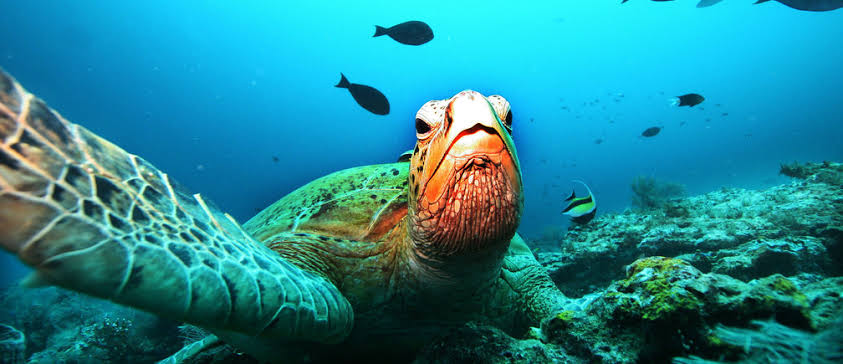
The seas are significant for supporting life on Earth. They help to give the air we inhale, the food we eat, and the fuel that drives our reality – yet they are in danger.
However, we can all do our part to reverse the situation of man-made harm that keeps on undermining marine conditions. The current year’s Call to Earth Day will occur on Thursday, November 3, with the subject “Living Oceans: Turning the Tide.”
Whether you live on the coast or a long way from the ocean, on this Call to Earth Day you can make a move to safeguard the world’s seas and the plants and creatures that live in their waters.
Here, we commend our oceans and take a gander at why we want to safeguard them, presently like never before.
The air we relax
Seas go about as carbon sinks, diminishing how much CO2 is in the air.
Rainforests are frequently alluded to as the lungs of the Earth, however minuscule life forms in our seas produce the greater part of the world’s oxygen.
The seas and the life inside them likewise ingest about a fourth of the carbon dioxide we discharge into the air.
That assists with diminishing how much CO2 is in the Earth’s climate, safeguarding us from unnatural weather change. Be that as it may, it includes some significant pitfalls.
At the point when seas retain CO2, they become more acidic. Today, seas are more acidic than they have been in something like 800,000 years. This causticity influences marine species – – including microscopic fish, shellfish, and corals – – that form their shells and skeletons from calcium carbonate.
It’s fundamental that we decrease CO2 discharges, and we can all make substantial moves to have an effect.
Watch: How to save the planet: Five basic things you can do
Powering our reality
A seaward wind ranch off the bank of Liverpool, England.
Seaward wind homesteads, and wave and flowing power can possibly give environmentally friendly power to a world that requires eliminating petroleum derivatives.
The seas are a critical wellspring of those petroleum products, with in excess of a fourth of all our oil and gas coming from seaward sources.
In any case, a huge number of gallons of oil are delivered into the seas every year. This comes from various sources, including normal leaks, boring, and spills from boats and pipelines. Oil from streets and tempest depletes additional streams into the ocean.
Oil slicks can be destructive to ocean life. Dolphins can breathe in oil, harming their lungs. Oil hurts fish, traps turtles, and can make birds’ plumes incapable to repulse water, making them pass on from hypothermia. After a spill, it can require a very long time for a biological system to recuperate.
Making the climate
Covering around 70% of the Earth’s surface, the seas have a fundamental impact on managing our environment. They hold temperatures back from getting too hot or cold and their water vanishes to frame fume that can travel immense distances prior to falling as a downpour.
By retaining heat the seas are likewise a cushion against an unnatural weather change. Over 90% of the warming that has occurred on Earth throughout recent years has happened in the sea. In any case, the additional intensity is making seawater grow, causing ocean levels to rise and undermining beachfront networks all over the planet.
Also, when oceans get too hot, marine life endures. Corals can starve and become ghastly white. As of late, reefs all over the planet — remembering a portion of the corals for the Great Barrier Reef — have encountered mass fading occasions.
Peruse: Coral reefs are confronting their own pandemic – – however we have a survival reference
Untamed life shelter
Up until this point, researchers have distinguished around 250,000 marine species, however, over 80% of the sea is as yet neglected, and specialists gauge that nine out of 10 sea species still can’t seem to be ordered.
Nonetheless, contamination is harming biological systems and hurting natural life.
Sea untamed life, similar to this hawksbill ocean turtle close to Australia, depends on the sea to support life.
A large number of lots of plastic end up in the seas consistently, killing and harming ocean animals. Little bits of plastic can be ingested by marine life, with possibly hurtful impacts.
Composts wash from farmland into the ocean, where they can take care of immense sprouts of green growth. By spending the oxygen in the water, blossoms like these have made in excess of 400 seas “no man’s lands,” together making up an area greater than the United Kingdom. These regions are so kept from oxygen they can scarcely uphold marine life.
Taking care of the planet
Internationally, around 15% of the protein we eat comes from fish. With a developing human populace and the improvement of modern scale fishing advances, two times as much fish is eaten now than in 1970.
Anglers pull in their catch in southeastern France.
Anglers pull in their catch in southeastern France.
Business fishing has prompted over 90% of marine fish stocks to turn out to be completely fished or overfished.
Overfishing will in general kill off bigger fish and decrease multiplication rates, further exhausting fish stocks.
It additionally compromises a huge number of individuals who rely upon looking for their food and pay.
It’s not past the point of no return
The circumstance might look dreary, yet having an effect is not past the point of no return.
Over time, Call to Earth shares the astonishing activity that is occurring all over the planet to safeguard our planet and our oceans – – and presently rolling out an improvement to support the sea and its inhabitants is your opportunity.
On Thursday, November 3, you can get together with a large number of individuals all over the planet and engage with Call to Earth Day 2022, “Living Oceans: Turning the Tide.” Send us an email at calltoearth@warnermedia.com assuming you might want to join our Call to Earth mailing list.
While there are endless dangers to our oceans, there are likewise numerous amazing chances to track down arrangements. Our seas give us life, however, it ultimately depends on us to safeguard them.
Have your say!

Customer Reviews
Thanks for submitting your comment!